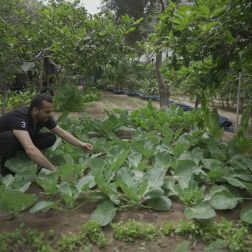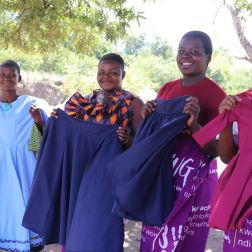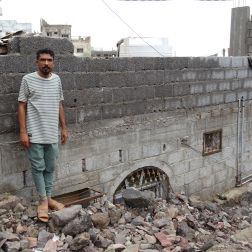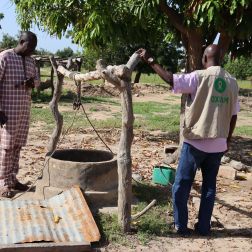- 5 mins read time
- Published: 28th February 2021
Crisis upon crisis: Families in Yemen forced into debt to pay for food and medicine
Almost six years of war has pushed Yemen to the brink. Thousands have been killed, millions displaced and the country's infrastructure has been devastated.
With the economy shattered, food prices skyrocketing and huge levels of unemployment, it has emerged that almost 40 percent of families are using debt to buy food and medicines.
New research by Oxfam has revealed that families say they can’t borrow the money they need for essentials unless shopkeepers know they have a monthly income. For many, this means the cash transfers they receive from humanitarian agencies.
Shopkeepers estimate that the number of families using debt to buy food has risen by 62 percent since the conflict started, while pharmacists estimate an increase of 44 percent in debt being used to purchase medicines.
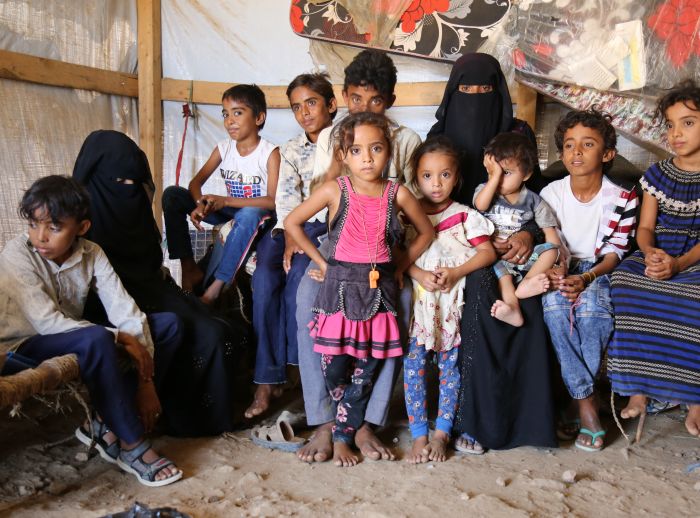
Hind Qassem*, 45, was pregnant with her tenth child when her husband was killed by an artillery shell, forcing her to flee with her children. At first, they lived under a plastic sheet, relying on leftovers given by neighbouring families. Three of her sons suffer from sickle cell anaemia and need blood transfusions every month.
“Now, I receive YER 45,000 (around US$70) every month," she said. "Yes, it is not enough to cover all our needs but it helps a lot. I am now able to pay for my children’s treatment and buy some flour and vegetables for us to eat. Shops will now allow us to buy food on credit because we are receiving monthly assistance."
Many families who are struggling with debt say that they are living permanently in arrears - using their transfer to pay off what they owe and then run up more debt as they wait for their next aid payment.
Last year, donors only provided half of the aid money needed for the world’s largest humanitarian crisis. With the 2021 UN humanitarian need budget for Yemen due imminently, Oxfam is urging the international community to be generous when pledging funds.
Ibrahim Alwazir, who carried out the research for Oxfam, said: “To struggle this hard to be able to provide food and medicine for one's family is an avoidable hardship that millions have to overcome on a daily basis. We need peace so no more Yemenis are forced to flee their homes and live in poverty.
“Peace will allow people to rebuild their lives and businesses, but we need support to help communities to do that. This war has turned my country into the world’s largest humanitarian crisis and it’s only getting worse. We all just want to get back to normal life.”
Some 24.3 million Yemenis, over 53 per cent of the population, currently need humanitarian assistance. This year, 16.2 million Yemenis will rely on food aid to survive, with 17.9 million lacking access to healthcare in a country where only half of health facilities are fully functional.
It is estimated that in parts of Yemen one in five children are severely malnourished and will grow up with life-long medical conditions if they do not get more food.
Oxfam, along with other agencies in Yemen, provides support for struggling families in the form of cash transfers which allows people to choose what they buy and helps stimulate local markets.
Grocery store owner Abdulkareem Salaeh said: "We are left with no choice [but to offer credit]. People are desperate, and we are struggling to keep the business going. While some are able to pay, others can't and that's a problem.
"We only agree to lend people with a reliable source of income, like employees, business owners, daily wage labourers or those receiving humanitarian aid, else it will be a loss that we can't afford. We are barely able to cover operational costs and the costs of goods we sell. It's unfortunate!"
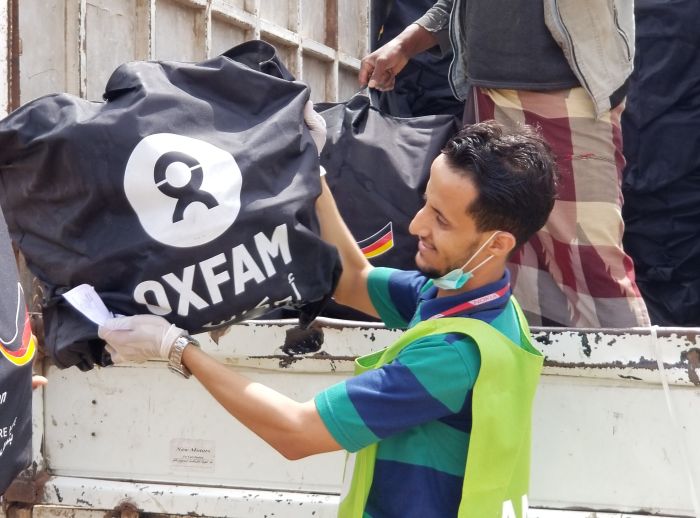
Oxfam been on the ground in Yemen since 2015, helping more than 3 million people in nine governorates with clean water and sanitation, cash assistance and food vouchers.
We’ve provided clean water and sanitation to more than one million people, including in hard-to-reach areas of the country, through providing water by truck, repairing water systems, delivering filters and jerry cans, as well as building latrines and organising cleaning campaigns.
To help combat Covid-19, we’re also supporting the healthcare system with hygiene equipment, hospital supplies and mobile services for rural areas. We’ve been able to provide the health authorities in Amran governorate, northern Yemen, with five mobile health centres, as well as oxygen cylinders, hospital beds, PPE and fuel to help with the running of generators.
*Name changed
